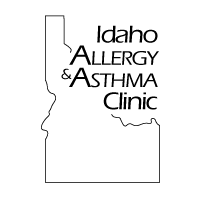Asthma Symptoms & Treatment for Patients in Idaho Falls, ID
How common is Asthma?
In the United States asthma affects about 25 million people. That is about 1 in 12 people who have asthma and it costs the U.S. about $57 billion dollars per year in lost work, medical costs and even early deaths, and this information was from 2007! (1)
What causes Asthma?
We are still learning all the causes of asthma. We know that there is genetic influence. If your parents have asthma that increases your risk of having asthma. We know environmental exposures like cigarette smoke or diesel exhaust or allergens can trigger asthma (2). Also being born prematurely, or having an infection like RSV that gets your child admitted to the hospital is associated with asthma.
How do I treat my Asthma?
There are two main categories of medications for asthma. Rescue medications and controller medications. Rescue medications such as albuterol (ProAir, Proventil, Ventolin) or levalbuterol (Xopenex) open up your airways so you can breath better. These medications work quickly usually with in 5-20 min. They only work in your body for a short time. Usually they are expected to help for about 4-6 hours. If you are needing your rescue medication more than every 4 hours your should see your doctor. Also these are medications that are supposed to be used for rescue, if you are needing them more than 2 times in a day you also need to see your doctor.
Another use for rescue medications is prophylactic use. If your or your child plays sports and their practices and games always cause their asthma to flare up, then asthma prophylaxis may be needed. A person will use 1-2 puffs of albuterol or levalbuterol 20 min prior to exercise. This use before symptoms come on before hard exercise can be very helpful to prevent asthma symptoms.
Controller medications are slow onset medications that are designed to calm down inflammation in your lungs. They are mostly designed to be used on a regular basis to keep asthma under control. Even when you are not having symptoms you are supposed to take your controller medications to keep your asthma under control. However, If you are well controlled for 3-6 months it is a good idea to talk to your doctor about possibly stepping down your asthma medications. If you are having an acute attack controller medications do not have the quick onset of action like a rescue medicine (albuterol) to help calm down your attack. So, if you are on a controller medication it is still important to have a rescue medication with you.
Most of the asthma controller medications do have a steroid in them. Therefore it is very important to rinse your mouth out after you use your asthma medication. This can prevent a fungal infection in your mouth called thrush. If you develop thrush, talk to your doctor about treatment for this condition.
Sometimes asthma can be difficult to control and multiple medications can be required to control your asthma. Spiriva is a medication that has long been around for COPD ( chronic obstructive pulmonary disease), but in the United states in 2015 it got approval as an asthma controller medication. This medication works differently by relaxing the smooth muscle in your lungs.
One of the difficulties with asthma medications is properly getting the medications to your lungs. There are two main types of asthma inhalers. Metered dose inhalers ( MDI's) are also know as puffers as they have medicine mixed with a propellant to push the medicine into your lungs when you are taking a deep breath. Dry powder inhalers (DPI's) are breath actuated, or when you take a deep breath in, the force of your lungs will help bring the medicine into your lungs. Both MDI's and DPI's can be effective to get medicine into your lungs. Usually insurances will have both MDI's and DPI's that are on their preferred list of medications so it can be a matter of personal preference for which device you want to use.
A third delivery option is a nebulizer machine. This device is basically an air compressor that will turn a liquid medicine into a mist that you breath into your lungs. These are usually used in younger children or infants who are not yet coordinated enough to use a metered-dose inhaler or a dry powder inhaler. Nebulizer machines are also used in the elderly when they are losing the ability to have enough force to draw in medications.
One-way that metered-dose inhalers can become more effective is to use a spacer device. metered-dose inhalers have the ability to shoot out 16-18 inches. And can reach speeds of 60 miles per hour. Therefore if you just use a metered-dose inhaler and your mouth then most of the medication can hit the back of your throat and not get into your lungs. Spacer devices will fit onto the end of a metered-dose inhaler and will give her medication more space and more time to slow down so it can get into your lungs more effectively.
Before you use a medication you want to make sure that it is properly primed. When medications are not used for set amount of time, or if they're brand-new, they need to be shaken and also priming puffs need to be performed. The amount of puffs that need to be performed varies depending on what medication you use. However usually 2-4 puffs are needed to get the medication ready to go. And if the medication is again not used for a certain amount of days then it will again need to be re-primed before this is ready to use. Daily controller medications get primed at the beginning of the month and then are used until they are empty. But rescue medications may not be used as frequently, and may need to be primed for use.
If you are having asthma related issues, contact us today at 208-529-9292.






